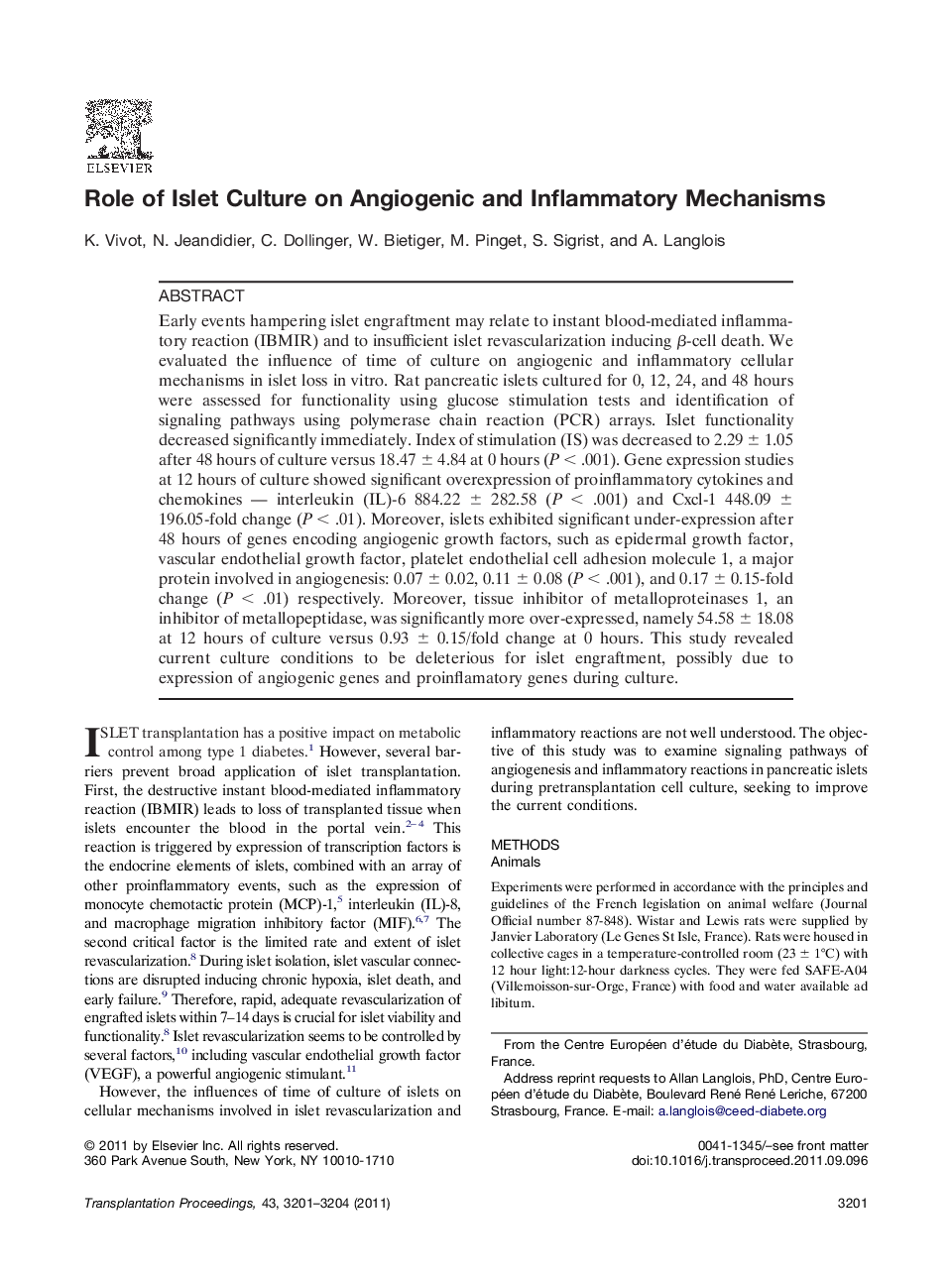| Article ID | Journal | Published Year | Pages | File Type |
|---|---|---|---|---|
| 4258556 | Transplantation Proceedings | 2011 | 4 Pages |
Early events hampering islet engraftment may relate to instant blood-mediated inflammatory reaction (IBMIR) and to insufficient islet revascularization inducing β-cell death. We evaluated the influence of time of culture on angiogenic and inflammatory cellular mechanisms in islet loss in vitro. Rat pancreatic islets cultured for 0, 12, 24, and 48 hours were assessed for functionality using glucose stimulation tests and identification of signaling pathways using polymerase chain reaction (PCR) arrays. Islet functionality decreased significantly immediately. Index of stimulation (IS) was decreased to 2.29 ± 1.05 after 48 hours of culture versus 18.47 ± 4.84 at 0 hours (P < .001). Gene expression studies at 12 hours of culture showed significant overexpression of proinflammatory cytokines and chemokines — interleukin (IL)-6 884.22 ± 282.58 (P < .001) and Cxcl-1 448.09 ± 196.05-fold change (P < .01). Moreover, islets exhibited significant under-expression after 48 hours of genes encoding angiogenic growth factors, such as epidermal growth factor, vascular endothelial growth factor, platelet endothelial cell adhesion molecule 1, a major protein involved in angiogenesis: 0.07 ± 0.02, 0.11 ± 0.08 (P < .001), and 0.17 ± 0.15-fold change (P < .01) respectively. Moreover, tissue inhibitor of metalloproteinases 1, an inhibitor of metallopeptidase, was significantly more over-expressed, namely 54.58 ± 18.08 at 12 hours of culture versus 0.93 ± 0.15/fold change at 0 hours. This study revealed current culture conditions to be deleterious for islet engraftment, possibly due to expression of angiogenic genes and proinflamatory genes during culture.
